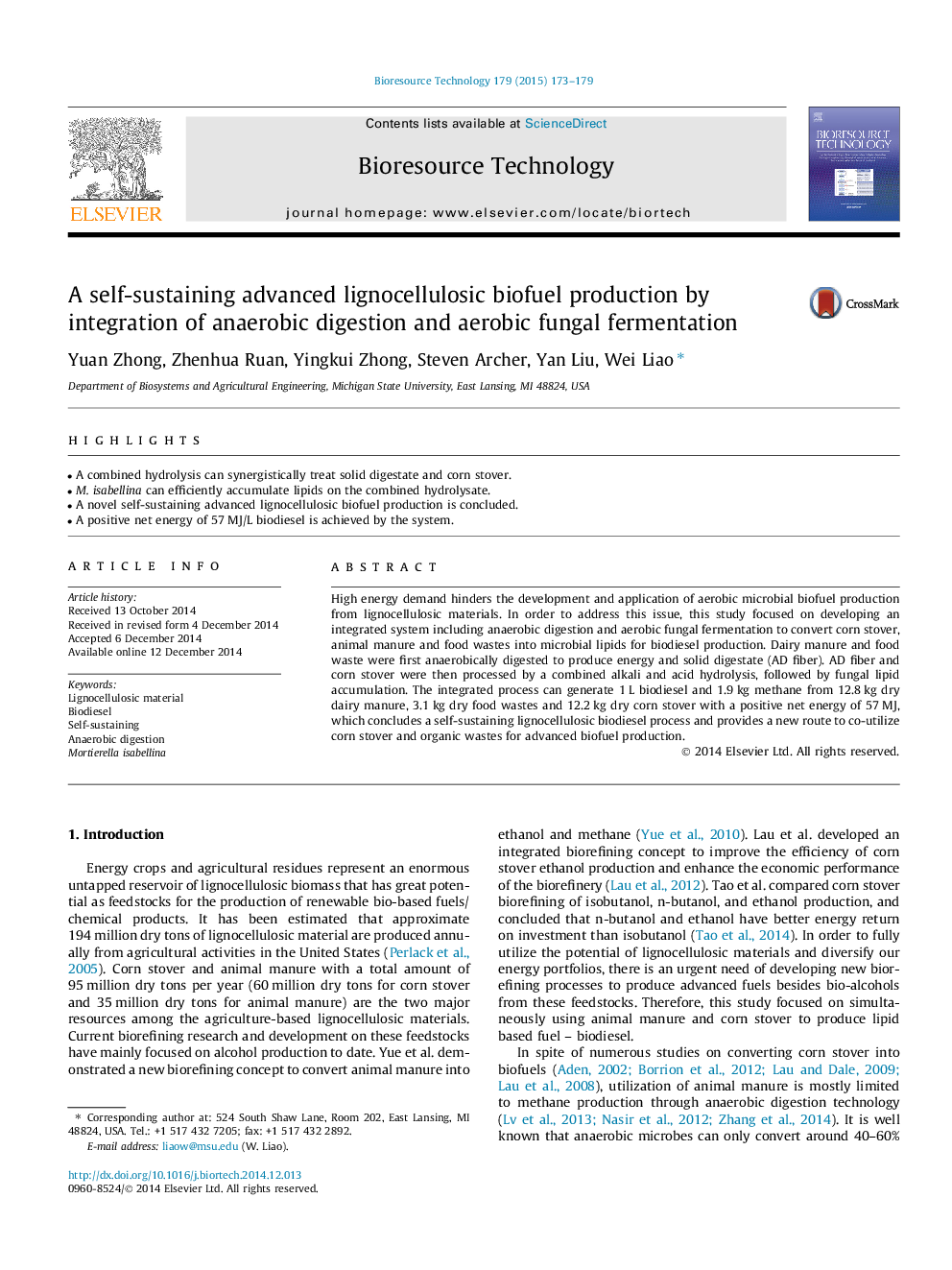| Article ID | Journal | Published Year | Pages | File Type |
|---|---|---|---|---|
| 680143 | Bioresource Technology | 2015 | 7 Pages |
•A combined hydrolysis can synergistically treat solid digestate and corn stover.•M. isabellina can efficiently accumulate lipids on the combined hydrolysate.•A novel self-sustaining advanced lignocellulosic biofuel production is concluded.•A positive net energy of 57 MJ/L biodiesel is achieved by the system.
High energy demand hinders the development and application of aerobic microbial biofuel production from lignocellulosic materials. In order to address this issue, this study focused on developing an integrated system including anaerobic digestion and aerobic fungal fermentation to convert corn stover, animal manure and food wastes into microbial lipids for biodiesel production. Dairy manure and food waste were first anaerobically digested to produce energy and solid digestate (AD fiber). AD fiber and corn stover were then processed by a combined alkali and acid hydrolysis, followed by fungal lipid accumulation. The integrated process can generate 1 L biodiesel and 1.9 kg methane from 12.8 kg dry dairy manure, 3.1 kg dry food wastes and 12.2 kg dry corn stover with a positive net energy of 57 MJ, which concludes a self-sustaining lignocellulosic biodiesel process and provides a new route to co-utilize corn stover and organic wastes for advanced biofuel production.
